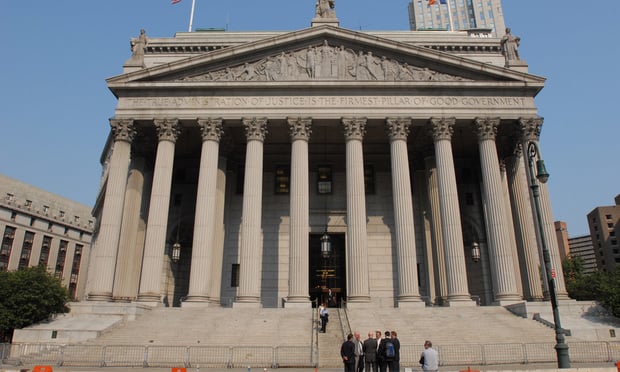Giyoung Song

April 03, 2019 | Legaltech News
Emerging Discovery Issues in Blockchain LitigationThe increase in litigation involving blockchain technology may give rise to issues of first impression in the discovery context as courts apply existing principles to the unique characteristics of blockchain technology.
By Stuart D. Levi, Alexander C. Drylewski, Giyoung Song and Thania Charmani, Skadden
7 minute read

February 01, 2019 | New York Law Journal
Privacy: What You Should Know About New Laws and Their Impact on E-Discovery in U.S. LitigationThe increased focus on protecting personal privacy may pose a new challenge to the bounds of e-discovery in U.S. litigation as courts reconcile whether and how new data protection laws apply to a litigant's obligation to produce relevant information.
By Lauren E. Aguiar, Giyoung Song and Eve-Christie Vermynck
11 minute read

October 15, 2018 | New York Law Journal
Continued Efficiencies in the Commercial DivisionNew York's Commercial Division recently initiated changes that continue its focus on utilizing efficiency, innovation and agility to attract high-stakes complex commercial cases.
By Patrick G. Rideout and Giyoung Song
7 minute read

December 12, 2016 | Legaltech News
The Current State of Predictive Coding in the CourtsPredictive coding decisions to date have focused on party disagreements and keywords.
By Giyoung Song, Skadden, Arps, Slate, Meagher & Flom
12 minute read

May 18, 2015 | Legaltech News
The Boundaries of Cooperative DiscoveryCourts will continue to define and refine the boundaries of cooperation.
By By Giyoung Song and Emma S. Glazer
6 minute read

May 17, 2015 | Legaltech News
The Boundaries of Cooperative DiscoveryCourts will continue to define and refine the boundaries of cooperation.
By By Giyoung Song and Emma S. Glazer
6 minute read

October 07, 2014 | Commercial Litigation Insider
Eliminating Asymmetrical Discovery to Resolve Disputes on the MeritsGeorge A. Zimmerman and Giyoung Song of Skadden, Arps, Slate, Meagher & Flom write: The cost of discovery has become increasingly unmanageable and is hindering the resolution of cases on the merits. Parties must cooperate to curtail discovery to what is proportional to the needs of the case, and the courts are more inclined to seek good cause before compelling discovery, and shift costs to the requesting party when appropriate.
By George A. Zimmerman and Giyoung Song
16 minute read

October 06, 2014 | New York Law Journal
Eliminating Asymmetrical Discovery to Resolve Disputes on the MeritsGeorge A. Zimmerman and Giyoung Song of Skadden, Arps, Slate, Meagher & Flom write: The cost of discovery has become increasingly unmanageable and is hindering the resolution of cases on the merits. Parties must cooperate to curtail discovery to what is proportional to the needs of the case, and the courts are more inclined to seek good cause before compelling discovery, and shift costs to the requesting party when appropriate.
By George A. Zimmerman and Giyoung Song
16 minute read
Trending Stories
- 1The Appropriate Exemption in Students for Fair Admissions v. President & Fellows of Harvard College
- 2DOJ, 10 State AGs File Amended Antitrust Complaint Against RealPage and Big Landlords
- 3New Partners at Cummings & Lockwood, Carmody Torrance Sandak & Hennessey
- 4'Extra Government'?: NY Top Court Eyes Ethics Commission's Constitutionality
- 5South Texas College of Law Houston Selects New Dean
More from ALM
- Scan In Progress: Litigators Leverage AI to Screen Prospective Jurors 1 minute read
- Legal Speak at General Counsel Conference East 2024: Match Group's Katie Dugan & Herrick's Carol Goodman 1 minute read
- Legal Speak at General Counsel Conference East 2024: Eric Wall, Executive VP, Syllo 1 minute read



